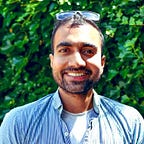Beginnings of the modern insurance industry
Modern Insurance industry began during the Enlightenment era (17th and 18th centuries) in Europe. And property insurance as we know it today can be traced to the Great Fire of London of 1666.
In London, In 1687, Edward Lloyd opened a coffee house on Tower Street, near the London docks. The shop became known as a place for gossip on topics including the plague, the Great Fire of London, the ships sailing in and out and what they carried.
Gamblers placed bets on whether they would arrive safely or not.
Edward Lloyd then began to assemble a network of reporters and informers, and created a newsletter full of information about port comings and goings known as “Lloyds List”.
If someone wished to insure a ship, insurers in the coffee shop would draw up a contract and sign his name underneath — hence the term “underwriter”.
Today Lloyd’s of London is one of the most famous names in insurance.
Insurance in Ancient times
Insurance as a concept predates history. The oldest record of insurance can be found during the Babylonia era (c. 1792–1750 BC) when Swiss archeologist Gustave Jequier discovered a large stone stele in what is today western Iran. That large stone was 2.25m or 7.5 feet tall and was covered with cuneiform writing.
After it was translated, it was found to have been a list of 282 laws written down by the Babylonian King Hammurabi. The laws covered many of the same issues that people deal with in the modern world.
The laws also included insurance in the form of clauses that safeguarded a debtor, allowing them to forgive their loan if some personal catastrophe impeded payment.
- Law 103 relieved a debtor of their liability for an entire loan in the event of theft during the term,
- Law 104 stipulated the carrier to create a contract for carriage.
- Law 105 defined how claims without receipts were invalid,
- Law 126 defined punishment for false claims.
- Law 240 stipulated recovery in form of replacement.
Insurance in monetary and non-monetary economies
In Ancient times two types of economies existed in human societies:
- Natural or non-monetary economies (using barter and trade)
- Monetary economies (with markets, currency, etc..)
Insurance in non-monetary economies
Insurance in non-monetary economies was seen in forms of agreements of mutual aid.
Where institutions such as co-operatives were formed to provide mutual protection and to encourage mutual survival in adverse circumstances.
For example:
- If one family’s house gets destroyed, the neighbours are committed to helping rebuild it.
- Public granaries embodied another early form of insurance to indemnify against famines.
Insurance in monetary economies
Insurance in monetary economies, Babylonian, Chinese, and Indian traders practiced methods of transferring or distributing risk during the 3rd and 2nd millennia BC.
- Chinese merchants traversing treacherous rivers would redistribute their wares across many vessels to limit the loss due to any single vessel’s capsizing.
- The Babylonians developed a system recorded in the famous Code of Hammurabi, If a merchant received a loan to fund his shipment, he would be relieved in the event of a theft.
- In India the origins of insurance dates back to 4th century B.C. to the period of Chandragupta Maurya’s regime. It was mentioned in the writings of Kautilya (Arthashastra), Manu (Manusmriti) and Yagnavalkya (Dharmashastra). These writings describe Insurance as “pooling of resources that could be re-distributed in times of calamities such as fire, floods, epidemics and famine”. This was a kind of pre-cursor to modern day Insurance.
